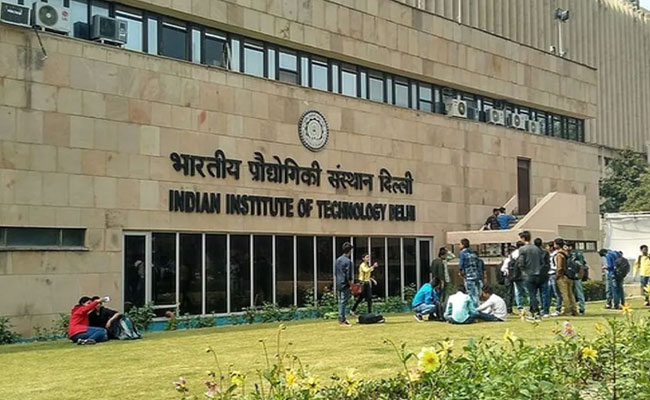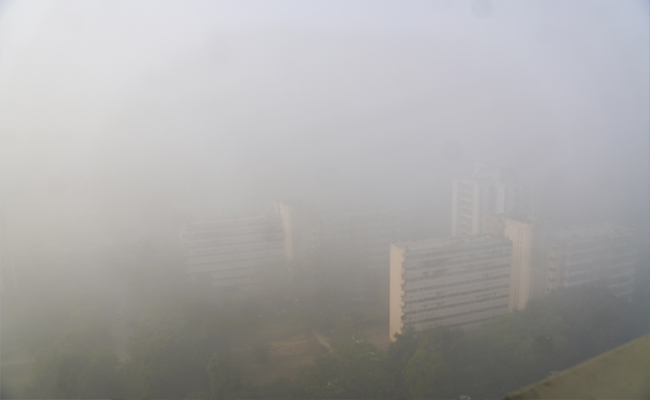New Delhi (PTI): The Indian Institute of Technology, Delhi has revamped its evaluation system and dropped a set of mid-semester exams to reduce students' stress, according to institute director Rangan Banerjee.
The decision comes against the backdrop of several cases of student suicides across IITs which has sparked a debate about whether the curriculum and the rigorous study schedule are impacting the mental health of students.
"Earlier we used to have two sets of exams during a semester, final exams at the end of each semester and several continuous evaluation mechanisms. We conducted an internal survey and based on feedback from all students and faculty, we have decided to drop one set of exams. So, now there will be two sets of exams besides routine evaluations," Banerjee told PTI in an interview.
"We felt that the exam calendar was too packed and hence decided to reduce student burden and stress. The decision has also been approved by the Senate and will be implemented from the ongoing semester. A maximum cap of 80 per cent weightage has been kept for the two examinations," he added.
The IIT Council, in its meeting in April, decided that there is a need for a robust grievance redressal system; increasing psychological counselling services; reducing pressure, fear of failure and rejection among students.
The issue of student suicide, alleged discrimination, and ensuring the mental well-being of students was discussed at length during the meeting.
According to data shared in Parliament last month, IITs have reported the highest number of student suicide cases in the last five years.
From 2018 to 2023, at least 39 out of the total 98 deaths by suicide in top higher education institutions of India took place at IITs.
"In addition to existing mechanisms to deal with stress and ensure mental well-being among the students, IIT Delhi is pushing to strengthen some mentorship and interactive verticals, especially to encourage interactions with students outside the classrooms, preferably at an individual level," Banerjee said.
"We are also increasing the frequency of 'open house' interactions with students besides the frequency of periodic informal dinners or meals between students and faculty in small groups through the existing Student-Teacher Interaction Council," he added.
The institute is also facilitating faculty-student interactions via academic-domain-independent and academic-domain-dependent faculty mentorships.
Talking about student suicides Banerjee said, "Students in IITs come through an extremely competitive process, they have come into a classroom where there are so many people who are very intelligent...We have to be able to tell people how to cope with failure...this is something we are focusing on.
"We have expanded our counselling set up, we have students as well as professional counsellors in our hostels. We want to track students whose performance is deteriorating so they can be mentored accordingly," he said.
Banerjee said, "Any suicide is tragic and it's heartbreaking for everyone. We have to create an enabling ecosystem so that whenever a student is facing any difficulty emotionally or mentally, he or she should be able to approach someone and get the right counselling and mentorship at that stage".
A 20-year-old B.Tech final-year student at IIT Delhi died by suicide in a campus hostel last month.
According to police officials investigating the case, the deceased student's family has informed us that he was not happy with his performance in a couple of subjects in the recent final-year examinations.
Let the Truth be known. If you read VB and like VB, please be a VB Supporter and Help us deliver the Truth to one and all.
Kalaburagi: Two years after being expelled from the Janata Dal (Secular), former minister C.M. Ibrahim has announced that he will launch a new regional political party in Karnataka on January 24, reported Deccan Herald.
Speaking at a meeting organised by the Nava Karnataka Nirmana Andolana in Kalaburagi on Sunday, Ibrahim confirmed the birth of the new party.
The 77-year-old politician stated he would soon be meeting with other like-minded individuals to choose a symbol for the party.
ALSO READ: Veteran Congress leader Shamanuru Shivashankarappa laid to rest with full state honours
Ibrahim emphasised that the organisation would be guided by the principles of 12th-century social reformer Basavanna and the architect of the Indian Constitution, Dr. B. R. Ambedkar.
A veteran politician, Ibrahim served as Union Civil Aviation Minister during the tenure of H.D. Deve Gowda as Prime Minister and later headed the Karnataka unit of the Janata Dal (Secular). He was expelled from the JD(S) in 2023 on charges of anti-party activities.
His exit from the party followed sharp differences over the JD(S) decision to ally with the Bharatiya Janata Party (BJP). As the then state president of the JD(S), Ibrahim had publicly criticised the alliance, claiming it was finalised without his knowledge. He had also reportedly convened meetings of his supporters and expressed support for the INDIA bloc.





